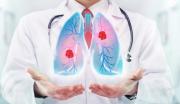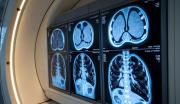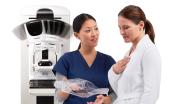
Women know their bodies’ best and monthly breast self-exams are vital in detecting a lump or any changes. Breast lumps or masses are only one of the possible signs of breast cancer and the reason annual screening for breast cancer is so vital.
General Surgeon, Dr. Desiree D’Angelo of Premier Surgical Network in Egg Harbor Township and Cape May Court House specializes in the care of breast cancer and breast related diseases said timely breast screening is key. “With the pandemic, some women are behind in getting their screening mammograms and while it may have been challenging to get an appointment, most radiology centers are caught up with any backlogs. The reason we have continued annual screening mammograms is to try to catch breast cancers early,” said Dr. D’Angelo. “Finding breast cancer when it is Stage I rather than Stage III will certainly change a patient's treatment course and overall survival rate.”
General Surgeon Dr. Lisa Iucci, also of Premier Surgical Network, who specializes in breast surgery and is a wound care specialist at the Shore Wound Care Center says it is very important for women to be cognizant of any changes to their breasts, even subtle ones. Likewise, men should be aware of changes in their breasts or chest. Although rare, men can develop breast cancer as well.
Breast tissue can feel somewhat sponge-like normally. According to the American Cancer Society, a breast lump will feel like a distinct mass that is noticeably more solid than the rest of the breast. Not all lumps felt in the breast are cancerous though. Many breast lumps turn out to be non-cancerous (benign) changes in fibrous tissue or cysts. A cyst is a fluid-filled round or oval sac within the breast. They can be tender to the touch and feel like a round movable marble. They can occur at any age, but are most common in women in their 30s-40s. Dr. D’Angelo said cysts can typically be aspirated with a needle in the office and do not require an incision.
“Anyone who is concerned about a new finding in their breast should contact their primary care physician or their OB/GYN as a first step. They will make the initial determination if any imaging of the breast is needed. If there is anything abnormal, then the patient will be directed to come in for evaluation by a breast surgeon,” said Dr. Iucci.
Other changes in the breast that should prompt further evaluation by your doctor
- Skin discoloration or irritation – If the breast turns pink or reddish on more than half of the breast, women should speak with their doctor. It may be more difficult to notice with certain skin tones or with women who have very large breasts. Peeling, scaling, or flaking around the nipple or areola or on the breast can also be a sign that there is an issue in your breast. These changes can sometimes indicate an infection but can be associated with breast cancer.
- Lymph nodes – Enlarged lymph nodes under your arm or in your neck can be a sign of cancer or infection. Enlarged lymph nodes like this should be shown to your doctor so additional tests can be done. This might include an ultrasound or a lymph node biopsy.
- Breast pain – Though many women experience discomfort in their breasts around the time of their period, persistent pain or severe pain should be evaluated by your doctor. Breast pain is very common and can be related to the patient’s amount of caffeine intake, as well as eating nuts and chocolate. Women with more dense fibrocystic breast tissue are more susceptible to breast pain. Breast cancer does not normally cause pain or tenderness, but it is still something to bring up with your OB/GYN or primary care physician.
- Change of shape/contour of the breast – There are many reasons the shape of the breast may change throughout one’s life, like pregnancy, weight loss/gain or menopause. If you notice a change in your breast or if your breast develops a dimple or pucker, it is not something to ignore. The skin texture can change and possibly resemble the texture of an orange peel. This can be a sign of a more invasive form of breast cancer.
- Inverted nipple –A change in the nipple shape is something to discuss with your primary care physician or OB/GYN. If your nipple has been inverted your whole life, that is nothing to worry about. When you notice a new change in the nipple, that is when you should point it out to your doctor as that could be a sign of underlying breast disease.
Breast Cancer Treatment
For women with breast cancer, treatment will likely be multifaceted and may include surgery, chemotherapy, radiation and/or hormone therapy. When it is time to discuss surgery for your breast cancer, Dr. Iucci said each patient’s cancer team will determine whether it would be best for the patient to have a lumpectomy or a mastectomy. “A lumpectomy is decided upon as the modality of tumor removal for many factors. One of which is the tumor size in comparison to the patient’s breast size. Sometimes for large tumors, patients can receive chemotherapy to shrink a tumor down to make it amenable for lumpectomy.” According to Dr. Iucci, “the patient will typically have a small, roughly 2-inch scar from a lumpectomy. The healing of the incision is usually about two weeks. We try to use the border of the nipple/areola complex to make the incision, if possible, so the scar blends into that line.”
Dr. D’Angelo explained that for patients that have a mastectomy, all of the breast tissue is removed but in some instances the nipple can be preserved. “In both cases, lumpectomy or mastectomy, breast reconstruction with oncoplastic or implant reconstruction may be an option for patients. There are many different options for breast reconstruction including breast lift type procedures, implant reconstruction and tissue flap reconstruction, where a patient’s back or abdominal tissue is used to recreate the breast mound,” says Dr. D’Angelo
Helping patients through their breast cancer journey is a very individualized and personalized process that requires a team of experts weighing in on treatment plans. At Shore Cancer Center, Dr. D’Angelo and Dr. Iucci present all of their breast cancer patients during our Breast Cancer Conference, which is a regularly scheduled meeting where all the team members, including medical oncology, radiation oncology, radiology, pathology, social workers, case managers, nurse navigators as well as others, can all weigh in on a patient’s unique cancer and their treatment plan. The team discusses in detail all the aspects of the patient's case and determines what the best treatment course is for the patient.
In some instances, genetic testing is done to determine if the patient has a known genetic predisposition to cancer. The BRCA 1 and 2 genes were the first genes that were discovered that put both men and women at an increased risk for breast cancer. Since their discovery, several other genes have been identified that can put a patient at risk for breast and other cancers. Now genetic testing consists of a panel of genes that gives a much more comprehensive picture of a patient's genetic risk.
After the patient completes treatment, they are monitored regularly going forward for months and years. Dr. Iucci said emphatically, “Yearly screenings are so important. If anything is discovered, we want to find it early, before it even causes any symptoms.”
Dr. D’Angelo said women should follow the guidelines for screening. “If a woman is at average risk for breast cancer, mammograms should begin at age 40 and be repeated each year.” For those women who have a 1st degree family member, like their mother or sister that was diagnosed with breast cancer under the age of 50 their screening should begin 10 years earlier. “For example, if your mother was diagnosed with breast cancer at age 43, then your mammograms would begin at age 33, instead of 40,” explains Dr. D’Angelo.
To schedule a mammogram at Shore Medical Center call 609-653-4600.
Mammograms can also be scheduled at Advanced Shore Imaging, 2605 Shore Road in Northfield, call 609-380-4175.
The Shore Cancer Center is a member of the Penn Cancer Network with offices in Somers Point at the corner of Shore Road and Medical Center Way, across from Shore Medical Center. To make an appointment call 609-653-3585.










